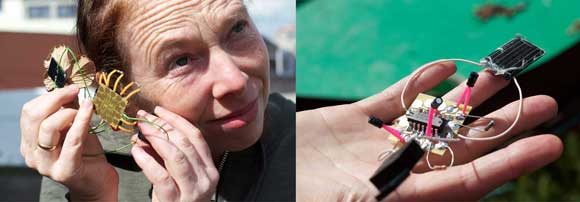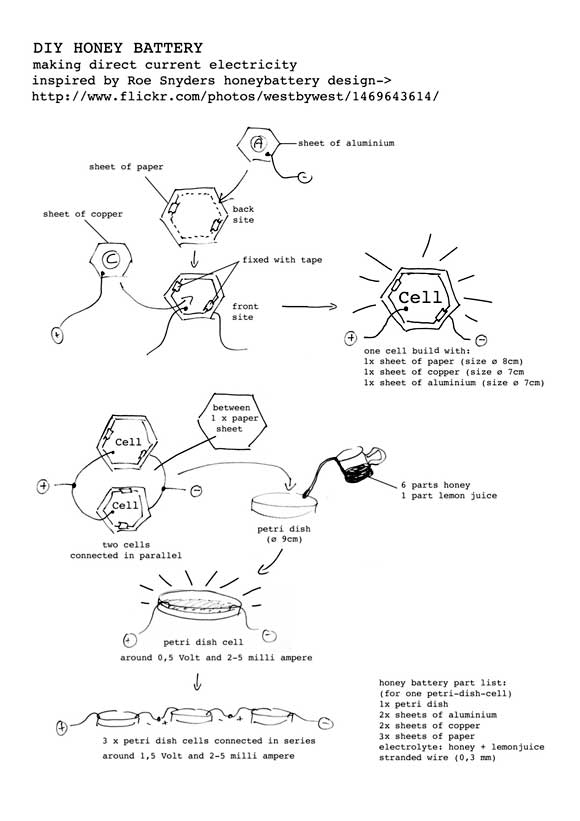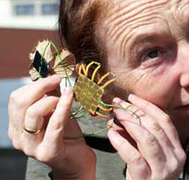The Open Green project blends organic and technological matter into one and the same nature. Through analogue and digital means we do long term observations on the growth, blossoming and decay of plants and insects submitted to natural elements such as wind, sun, rain and pollution in an urban context.
We monitor and extract data from natural processes both on a micro garden level as on a macro city level and make the data available online in realtime with open wireless citynetworks.
We research the connections between people, technology and the possible applications of the rooftop gardens. Can the gardens’ evolution be controlled, generated, enhanced or imagined in artworks? Does the fusion of natural and artificial matter produce new organisms, new environments, new forms of nature? Can technology animate nature and vice versa?
The Open Green is an artificial environment, a hybrid of nature and culture. The harvest is about scraping data of any kind from the garden and using it for organic ánd media applications.
With the Open Green project, we want to research if a diverse flora develops on green roofs in inner cities as well as in rural areas. In our findings we take into account the different soil compositions : lava, crushed bricks and concrete, organic matter, homemade compost, volcanic tuff, native soil.
We make statistics of climatological factors such as temperature and rainfall to study how they affect the floral diversity. We also take the surrounding city vegetation into account.
We research if we can mimic natural habitats with varied microtopographies, scattered rocks, rubble, dead wood and a more diverse vegetation.
We store the data of our long-term observations in the Open Green Database [http://opengreens.okno.be].
This relational database covers and reveals information on all elements of the Open Green rooftop gardens in numbers, text and images. Historical and current state of the gardens, goals of the project, people involved, sustainability factor. Permanent quadrat monitoring and poetic observations. It offers links to existing databases for further detailed information on plant- and animallife. It informs on data gathering and data treatment.
the self-sufficient garden: energy collection in the OpenGreens:



self-sufficient garden – energy out of waste:
with a little help of our friends the composting insects and micro-organisms
The micro-organisms or Collembola are arthropods that colonize the eco-system (the compost) in which the worms Eisenia foetida or Eisenia andrei live. Symbiosis develops between these two genres.
The presence of Collembola is a marker for proper functioning of the composting system.
bees collecting the last pollen and preparing for winter 2012-2013
Visit our blogposts to know more about recent events and activities, or search on any keyword.
